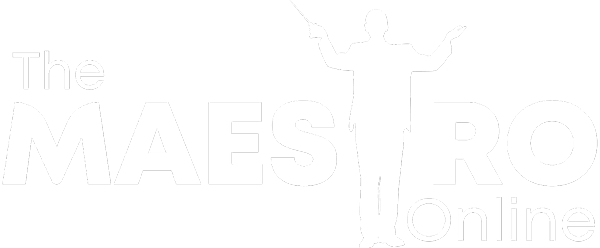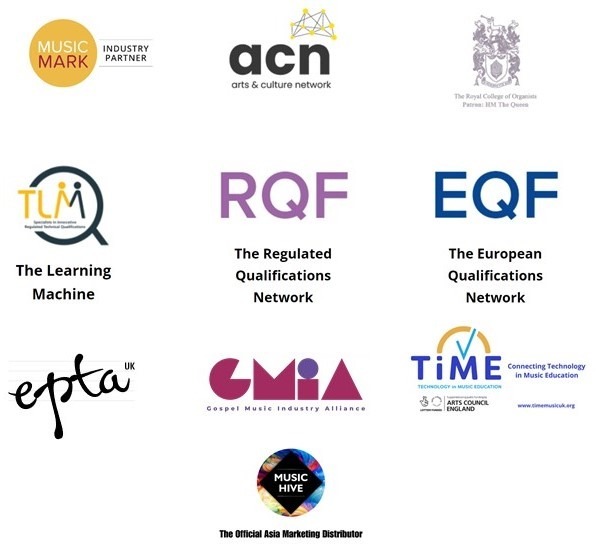The Maestro Online
What are Holistic Music Lessons?
Pedagogy, Emotional Well Being, Integrating Skills and Multiple Styles.
“You need intellectual and spiritual nourishment to be a performer”
Mark Padmore CBE, international Tenor.
What Do Learners Say?
I would like to thank Robin for his clever approach to teaching my daughter playing piano and using music as a therapy. He recognises his student’s learning style and is able to work along it to achieve great results. He is able to make something out of nothing and making the learning experience enjoyable for the student. It’s an art.
My daughter will never be a Beethoven but thank to Robin she likes what she’s doing and is keen on to going back to piano in the evening to play a tune for us. She enjoys it and we enjoy it also.
On several occasions he was able to incorporate relaxation and meditation techniques during lesson. His patient approach helps nervous students.
Seeing others happy doing something is a happy experience.
I would recommend Robin as a teacher who understands student and his/her needs and offers more than the piano lesson. It’s a music therapy and fun. Thank you again Robin!
1. PEDAGOGY: using Piano Lessons and Organ Lessons as examples
A summary, with more detail in the following articles:
The Art of Holistic Piano Lessons
Should Beginner Piano Lessons and Organ Lessons start with Middle C?
This column of the page is more pedagogical and about a breadth of approach.
What should a beginner’s piano lesson or organ lesson look like?
(1) Why you shouldn’t start with middle C
(2) Why improvisation allows creativity to flourish. It allows you to understand a concept such as a scale, specific chord, chord progressions etc through ‘doing’. This leads to deep understanding.
(3) Understand in the mind before doing: Connect pitch and rhythm with the ear and what you hear in the mind, internalising and using your ‘inner ear’ before performing. Much of this can be connected with the Kodaly approach, particularly solfege (see the aural page). Start with the music, not mechanical reproduction of dots.
(4) Extra-musical inspiration such as nature scenes or emotions for improv, pieces, the tone you produce and even how one note might begin, sustain and end.
(5) Transposition to enhance comprehension of keys and to feel relationships between notes (preventing the concept that a note is an individual moment).
(6) Exploring chords, accompaniments and textures. Experiment with inversions, use the full range.
(7) Notation doesn’t need to be abandoned at all. Rather, it grows out of an understanding. How do humans naturally learn? Copy their parents, improvise their own sentences, read and then write.
(8) Reading can travel through various steps: (a) guided reading with teacher support.
(b) read what you have already understood through playing
(c) read things that you haven’t seen before.
My Interview with Paul Harris, million selling music pedagogist expands on this: www.the-maestro-online.com/holistic-musician-interviews
2. EMOTIONAL WELLBEING Perspective, examples via Holistic Vocal Coach Singing Lessons and Piano Lessons
Holistic Singing Teaching and Vocal Coaching
Much more detail can be found in this article:
So what is Holistic Vocal Coaching in Singing Lessons?
Holistic singing and piano teaching examples include so many different things, hence “holistic”, it’s all-encompassing. Encapsulating it in the article links above are summarised below:
(1) Opening Up Emotionally – an older student who loves singing and also wants an outlet to chat and share her current feelings and thoughts, music providing the safety net for opening up.
(2) Posture and Breath – A professional rock-pop vocalist student who benefits from further advancing his pop vocal technique on a weekly basis via specific breathing and postural aspects that you will find with few other vocal coaches.
(3) Breath and Mindset – Someone seeking to gain her professional singing diploma using special breathing and mindset exercise to massively connecting her emotions and expression through her vocal tone.
(4) The Feel Good Factor – a young pupil loves music and singing. She arrives and leaves with a beaming smile and fun is all that she needs! The well-being aspect and the endorphins are crucial to good music making.
(5) Anxiety – Pupil A’s holistic piano lesson. A can feel really anxious and has discovered piano improvisation as a way to help her let emotions flow. The person that left was different to the person that arrived and the music we improvised was really quite touching. We continue to use exercises on how to make the piano express the emotion that we want. Whilst I don’t advertise lessons as being qualified music therapy, expert music lessons are certainly therapy for so many people.
Moments like this – I love my job.
(6) Allowing emotions to flow – B began his lesson saying that as a teenager he sometimes feels he wants his own space but at other times he loves being with the people he closest to him. Therefore, we started with a piano improv. He says he chose to show the two different feelings by contrasting low and high notes. The main melody represents people you care about helping you out.
Do you connect your music with your soul?
(7) Beginner Piano Improv Lessons for Pandemic Anxiety – Piano pupil C started improvising after a phone-call from his Dad. The young beginner piano pupil, as a result of the Covid 19 pandemic, had become extremely anxious about anything social or even going out. Even though, locally, the area is coming out of lockdown, it is only now that his family are realising the long-term effects. Towards the end of the lesson, Pupil C rehearses the piece a few times in his head only and then we video it and email it to Dad.
What a happy pupil he was!
3. INTEGRATING SKILLS - Holistic Aural Lessons and Musicianship to Diploma Levels
Other articles to consider:
What it Means to Train the Whole Musician
Advanced Music Aural Skills, Theory Lessons and Improvisation Integrated
These incorporate a range of skills within every task.
Practice technique is a key element. Ever stammer when practising? You constantly repeat the same thing and it becomes a learned pattern? The whole brain needs to slow down. The method of practise needs to work from the end back to the beginning.
Aural teaching can be very strategic and planned and internalisation via ‘training the whole musician’ is key, making many neurons fire to create many different connections. For instance, two common chord progressions that in ‘music theory’ seem very different, only have one note different: IV-V-I and iib-V-I. To spot only one note difference in a progression by ear is not easy, but through improvisation, as well as playing back and copying in a form of instant dictation, the sound is absorbed by the memory. This doesn’t happen through traditional theory tuition.
As per the first column, Paul Harris, million selling music pedagogist, sums some of this up through his Simultaneous Mindset method. I have interviewed Paul: www.the-maestro-online.com/international-musician-interviews
4. MULTIPLE MUSICAL STYLES: Your Holistic Piano Teacher, Singing Teacher, Vocal Coach and Organ Teacher
Many Musical Styles
Well, you’re reading an article by a a musician who trained at the Royal Northern College of Music Conservatoire, a highly classical establishment, gained a PhD in Musicology, grew up with a Church of England style choral and organ education, who lived with a Mandinko tribe in Gambia in order to learn their tribal songs and drumming, who worked with other tribes in South African in Ladysmith, who has directed a Gospel Choir in the UK, who studied jazz piano with a Russian genius for 4 years on a weekly basis, who co-directed a We Will Rock You season in a theatre, who has played keys for numerous Musical Theatre productions and coached Musical Theatre soloists, who learns Hindustani music from a guru in Sri Lanka weekly (applying it vocally and to piano), who still trains with an Opera Singer, an Early Music Specialist, a Nashville Coach, a former Hollywood Film Score director, learns Hindustani improvisation with a Sri Lankan guru, studied with a Russian jazz genius for 4 years, and who reached no. 1 in the UK, no. 33 globally for putting jazzy twists on pop songs in the Reverbnation Charts.
Holistic teaching?
Oh yes, most definitely!
Subscribe Today
For 1-1 music lessons (Zoom or in-person) visit The Maestro Online Calendar
Additional Membership Benefits
- Zoom support (there’s a human you can interactive with behind this platform!)
Additional Membership Benefits
- 3 months free membership of the Arts & Cultural Network (worth £45).
Additional Membership Benefits
- 1 months free UK piano hire and free delivery from Musiq Group with a 12 month contract.
Additional Membership Benefits
- You are also supporting The Maestro Online charitable outreach – bringing music education to regions and countries where such resources are difficult to find.
All Courses
Far cheaper than 1-1 lessons + a great add-on-
Annual: £195.99
-
All Piano Courses
-
All Organ Courses
-
All Singing Courses
-
All Guitar Courses
All Courses + Masterclasses + Exam Practice Toolkits
Best value-
Over £2000 total value
-
Annual: £299.99
-
All Masterclasses
-
All Exam Practice Toolkits
-
All Piano Courses
-
All Organ Courses
-
All Singing Courses
-
All Guitar Courses
All Courses + Masterclasses Exam Practice Toolkits
+ 1 hour 1-1 Lesson-
Monthly 1hr Lesson
-
All Exam Practice Toolkits
-
All Masterclasses
-
All Piano Courses
-
All Organ Courses
-
All Singing Courses
-
All Guitar Courses



